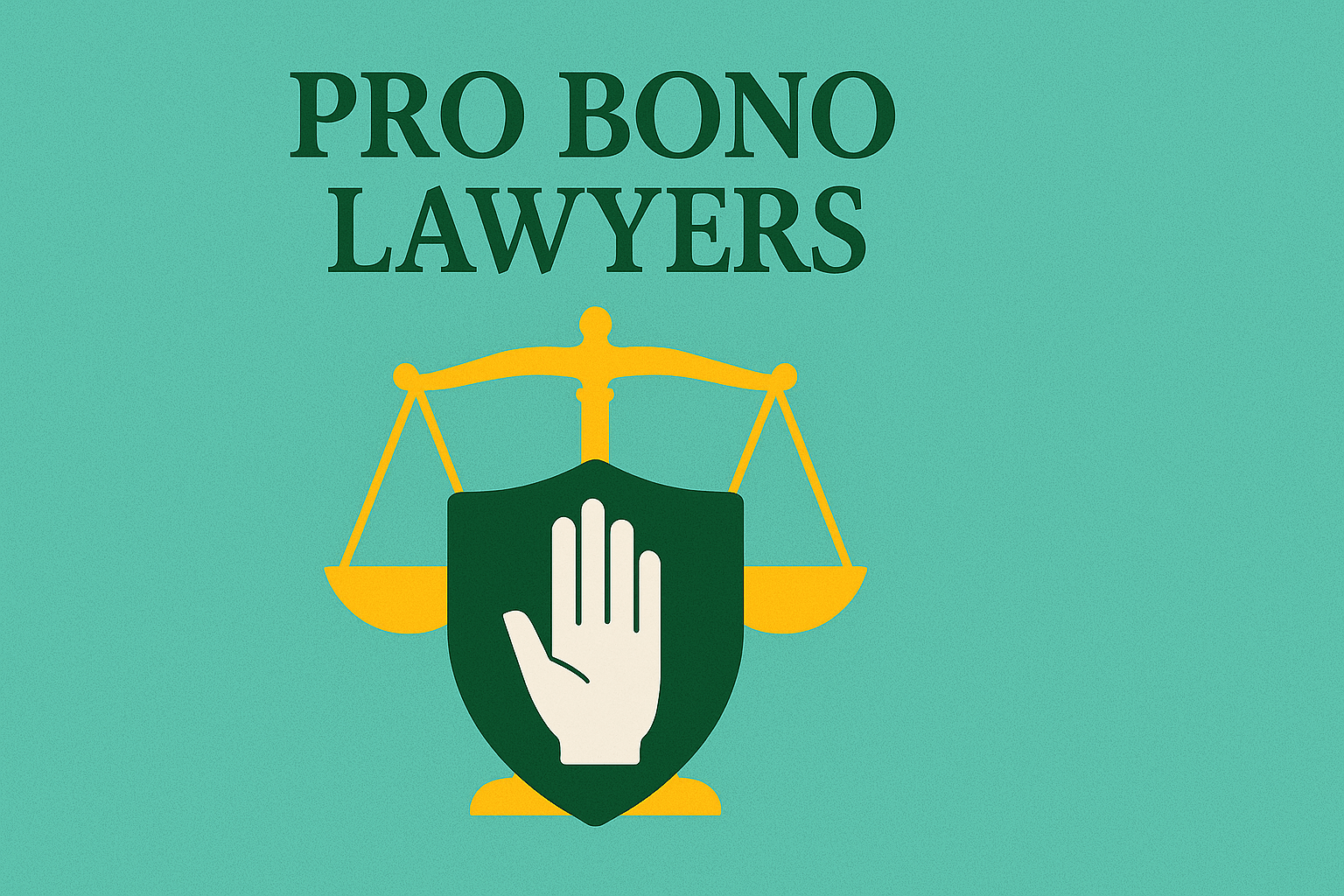Imagine facing eviction, domestic violence, or an unlawful termination, with no means of hiring a lawyer. Millions of people around the world know this to be true. Pro bono lawyers are those offering free or greatly reduced charges for legal services to those incapable of affording representation. Pro bono is not merely charity; it is the very foundation of justice that puts weight on the scales.
This guide dives deep into what pro bono lawyers do, the relevance of their work, and how to find one should you need legal assistance but turn out to be financially constrained.
Importance of Pro Bono Attorneys
Justice should never be a privilege. Yet in the U.S., 86% of all civil legal problems faced by low-income Americans received either inadequate or, sometimes, no legal assistance. Pro bono lawyers have always strived to fill this need.
They are indispensable when it comes to issues such as:
- Domestic violence
- Immigration and asylum
- Tenant-landlord disputes
- Discrimination in employment
- Civil rights violations
Due to their involvement, individuals are kept from the worst fate of having to represent themselves through legal proceedings that are often extremely complicated.
Advantages of Pro Bono Legal Services
1. Equal Access to Justice
In effect, it levels the playing field for a person who might otherwise find him/herself outmatched in court.
2. Community Impact
Pro bono work creates a couple of impact on entire communities where disputes affect families, neighborhoods, and public institutions.
3. Development of Lawyer’s Skills
For the attorney, too, pro bono work makes for an enriched career and reputation as it provides experience in areas that the attorney may not otherwise practice in regularly.
4. Social and Moral Responsibility
Lawyers generally cite their quest for personal satisfaction and a sense of responsibility as their motivating factors in providing free legal services.
Finding a Pro Bono Lawyer: The Step-By-Step Guide
Step 1: Determine Whether You Are Qualified
Most pro bono services cater to low-income individuals. To find out whether you qualify, check the federal poverty guidelines or the local legal aid office.
Step 2: Contact Legal Aid Societies
Commissions like the Legal Aid Society and its sister commissions will provide you with referral sources. LawHelp.org provides legal assistance and referrals to all on the Internet.
Step 3: Contact Law Schools
Most law schools have legal clinics located on campuses where supervised students render services to the community.
Step 4: Contact the Bar Association
Your statewide or county bar association may sponsor pro bono services or keep a directory of attorneys willing to accept such cases.
Step 5: Online Directories
Websites such as ProBono.net and Justia offer searchable volunteer lawyers’ databases based on location and specialty.
Real-World Example: Fighting for Asylum
Maria, an example of a political asylum seeker, fled from persecution and had no money, knew little English, and was to be deported. She was assisted by a pro bono immigration lawyer who took her case through the bureaucratic maze and helped her acquire her sought-after asylum. Today, Maria is pursuing a degree in social work as a college student because one lawyer stood up
Practical Tips and Advice
- Honest and Prepared: When seeking help, provide all the necessary documentation along with your true story.
- Quick Action: The harsh fact is that legal deadlines are inexorable. Seek help as soon as possible in order to have a better chance.
- Search for Alternatives: If no pro bono lawyer can help you, check sliding scale attorneys or self-help legal centers.
- Stay updated: Research some basic legalities about the terms and proceedings related to your case. This empowers you as well as your lawyer.
Common Mistakes to Avoid
- Too Long Wait: A legal emergency can easily turn into an even greater emergency. Don’t wait to seek help.
- Expect Full Representation: Some pro bono lawyers will only take cases partially. They may provide only legal advice or maybe just paperwork assistance.
- Not Following Up: Missed calls or appointments can hinder the progress of your case.
- Disregarding Eligibility Requirements: Always make sure that you meet the income and case-type eligibility before applying.
The Future of Pro Bono Legal Services
Rapid changes are occurring in the legal domain, with pro bono services adapting almost altogether so as to stay relevant within this framework.
- Virtual Legal Clinics: Online consultations have proven helpful in providing access to rural and underserved segments of society.
- AI and Legal Tech: Tools for chatbot assistance and document automation help lawyers serve larger numbers of clients.
- Mandatory Pro Bono Hours: Some jurisdictions now prescribe that attorneys must log certain pro bono hours each year.
Conclusion: Legal Aid as a Right, Not a Privilege
Realizing one’s constitutional right to justice should not be based upon the ability to pay for it. Pro bono lawyers try to ensure this does not happen. The pro bono legal system is a liberator for many individuals who find themselves truly in need or would like to give back.
Need help with legal problems, yet unable to afford an attorney? You could contact your nearest legal aid association or visit ProBono.net to seek assistance.
📅 Subscribe for more legal tips, access to resources, and expert interviews delivered weekly to your inbox.




